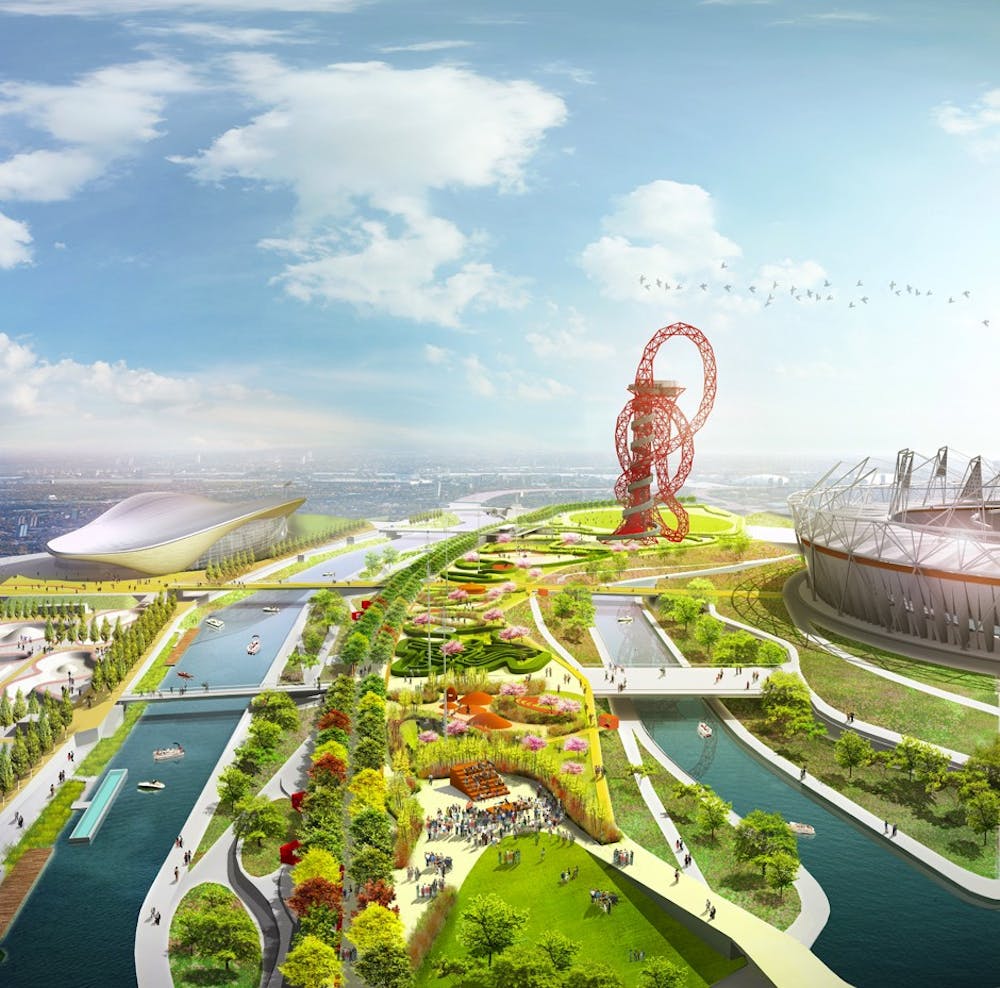Members of the Penn community have made it to the 2012 London Olympics — but not because of their athletic prowess.
School of Design professor James Corner was selected in December to design several public spaces that will be part of London Olympic Park South.
Corner — along with his team at James Corner Field Operations, his New York-based design practice — was chosen to lead the Olympic design out of a pool of more than 100 teams worldwide.
Construction of the public space will take place in Queen Elizabeth Olympic Park in Stratford, London. A major goal of the project is the continual use of the space after the Olympics are over.
“It was planned as an urban transformation project, which means it is not just the planning and design for the Olympics, but it is also the planning and design for what the site could be afterwards,” Corner said.
These grounds are referred to as the “legacy,” he added, which many past Olympic host cities have not created, resulting in a defunct area rather than a place that continues to draw in both locals and tourists.
“This project in London has this other dimension of what it will become after the Olympics,” Corner said.
Corner and his team were asked to work on this legacy planning for the “post-Olympics project,” such as a connection between the Olympic Stadium, the Aquatics Center and the ArcelorMittal Orbit — an observation tower that oversees all of Olympic Park.
Andrew Altman, chief executive of Olympic Park Legacy Company, said in a statement that Corner’s plans “really captured the character of the park as a compelling destination.”
2003 Penn graduate Justine Heilner — who is among several Penn alumni working on the project with Corner — said the construction process “is supposed to help regenerate that area of London.”
“It is really going to be a garden attractive for people to use on the weekends, but also a kind of a first destination,” said Heilner, the director of business development and marketing at JCFO. “It will have events happening and performances and things like that.”
Corner believes that the interdisciplinary nature of the park and design will be something to which the intellectually diverse Penn community can relate.
“This particular project is extraordinarily cross-disciplinary in terms of economic and urban planning issues tied in with cultural themes tied in with design and aesthetics,” he said. “One of the problems of the site at the moment is that it used to be a very industrial side of London and fairly poor side, so now the Olympic site has transformed this once industrial site into something very 21st century.”



